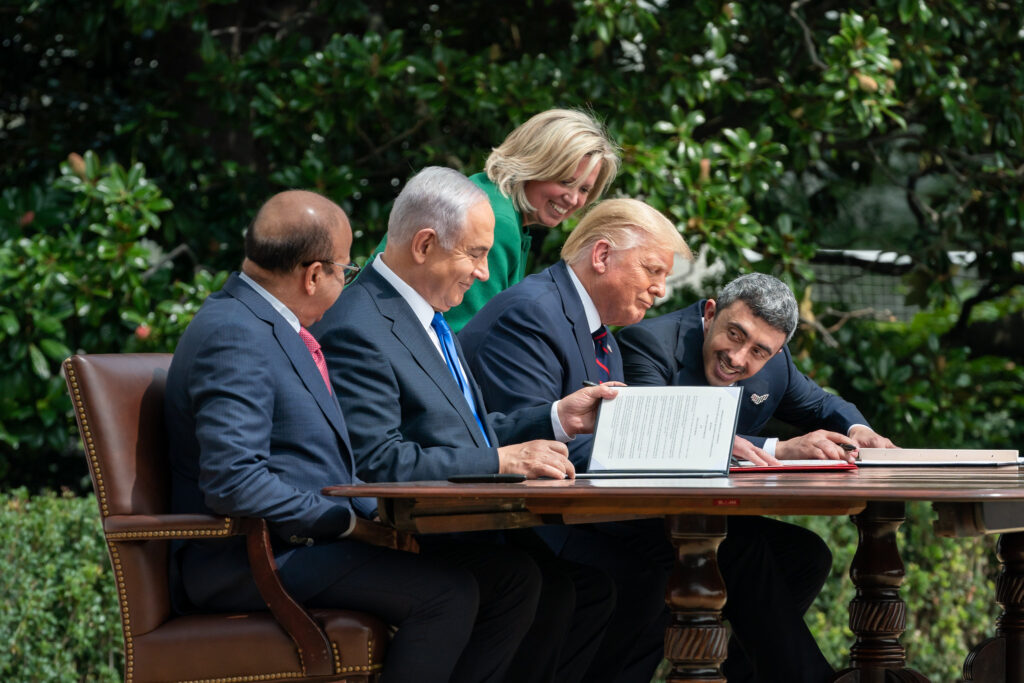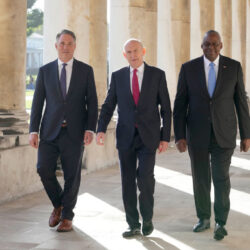
The Abraham Accords represent a series of U.S.-mediated agreements aimed at normalizing relations between Israel and several Arab nations. In September 2020, Israel, the United Arab Emirates, and Bahrain signed agreements establishing formal diplomatic ties. Later that year, Morocco and Israel agreed to formalize relations in return for U.S. recognition of Rabat’s claim over Western Sahara, while Sudan signed on to the accords after being removed from the U.S. sanctions list. Politicians, notably in the United States and Israel, commonly believed that these agreements would usher in a new period of peace and coexistence, and the promotion of lasting security in the region. Yet the question persists: Can the Abraham Accords truly bring peace to the Middle East?
Key Middle Eastern Challenges
While the Abraham Accords focus on Israeli-Arab relations, the core issue in the region – crucial for any genuine peace initiative – remains the unresolved Palestinian question. The Palestinian issue has been central to numerous wars and agreements over the decades, including the Israeli War of Independence in 1948-1949 and the conflicts of 1956, 1967, 1973, and 1982 involving Israel and several Arab nations, including Egypt, Jordan, Syria, and Lebanon. Additionally, recurring conflicts have erupted between Palestinians and Israeli forces since 1948. The current conflict involving Israel, Gaza, Hezbollah, and Iran, ignited on Oct. 7, 2023, could persist for years, highlighting how sidelining the Palestinian cause may obstruct peace efforts in the long run.
In fact, major Arab nations in the region have maintained positive relations with Israel, both formally and informally, over the past four decades. Egypt’s 1978 Camp David Accords and Jordan’s 1994 peace treaty with Israel illustrate longstanding diplomatic ties. Saudi Arabia, a close U.S. ally, has cooperated with Israel since its inception in 1948. However, the recent brutal conflict in Gaza, which has caused a devastating toll of over 45,500 fatalities — many of whom are women and children — has failed to prompt Arab or Muslim nations to intervene to stop the bloodshed or apply pressure on Israel. Consequently, it appears that the Abraham Accords will do little to alter Arab-Israeli relations. There is an effort to promote greater acceptance of Israel, especially in UAE, but the recent killing of a rabbi in UAE raises questions about the efficacy of that policy too.
Israel and the Palestinian Issue
For Israel, the primary challenge is not normalization with Arab countries, but the Palestinian issue and calls – whether internal, regional, or international – for the Palestinians’ right to an independent state side by side with Israel. An Israeli recognition of Palestinians’ rights would mean endorsing a two-state solution, a concept supported by international frameworks, including the 1993 Oslo Accords and broader U.N. resolutions. However, the Likud Party and Prime Minister Benjamin Netanyahu have long opposed Palestinian statehood and a return of occupied territories, instead envisioning the West Bak and Gaza Strip as parts of Israel.
From Israel’s viewpoint, peace is attainable only by asserting dominance, not only over Palestinians but across the region. This “peace through strength” approach is a zero-sum game, reflecting a belief that power defines relationships, forcing weaker parties to comply or face severe consequences. This method of enforcing peace through power resembles Thucydides’ account of the Melian dialogue: While the strong do what they can, the weak suffer what they must.
Consequently, those on the opposing side, Palestinian or otherwise, are left with no option but to submit to Israel’s demands or face death if they resist. Supported by the United States, Israel has often neutralized regional opposition through force or coerced peace deals. Given the recent violence, it appears that the Abraham Accords are not a final step toward peace but a divisive issue for Palestinians and others opposed to this approach.
U.S. Chief of Protocol Cam Henderson assists President Donald J. Trump, Minister of Foreign Affairs of Bahrain Dr. Abdullatif bin Rashid Al-Zayani, Israeli Prime Minister Benjamin Netanyahu, and Minister of Foreign Affairs for the United Arab Emirates Abdullah bin Zayed Al Nahyan with the documents during the signing of the Abraham Accords Tuesday, Sept. 15, 2020, on the South Lawn of the White House. (Official White House Photo Andrea Hanks)





